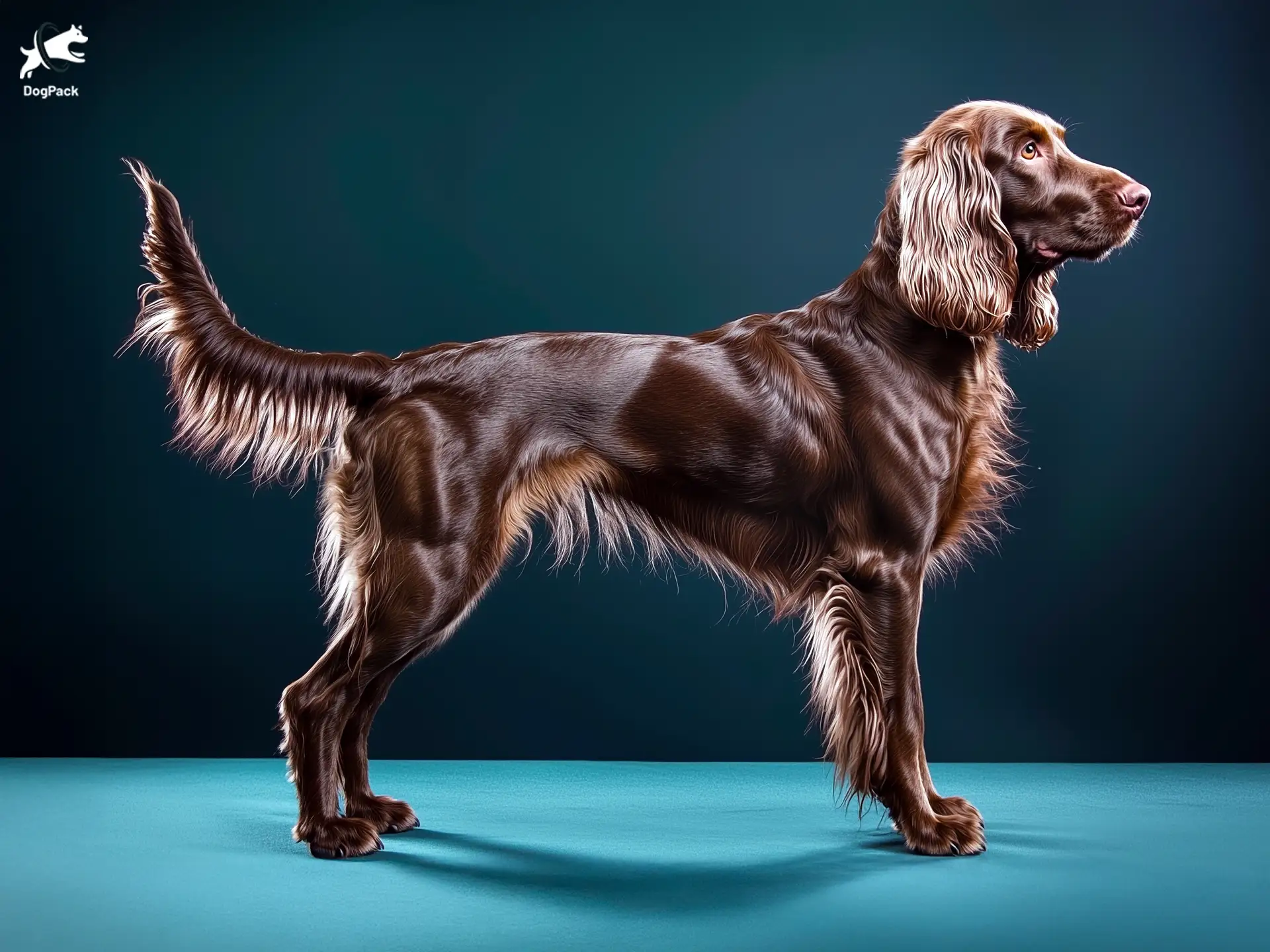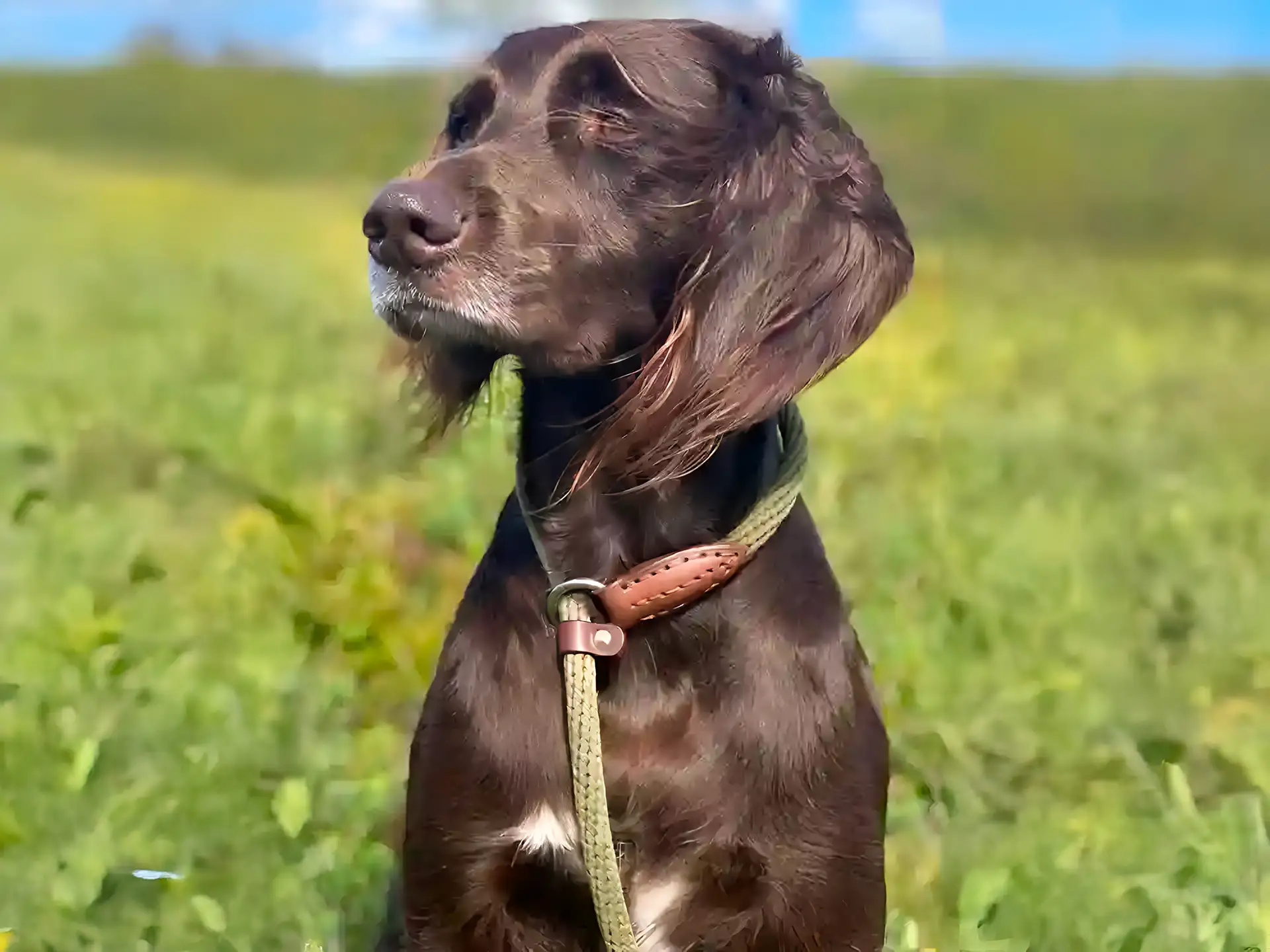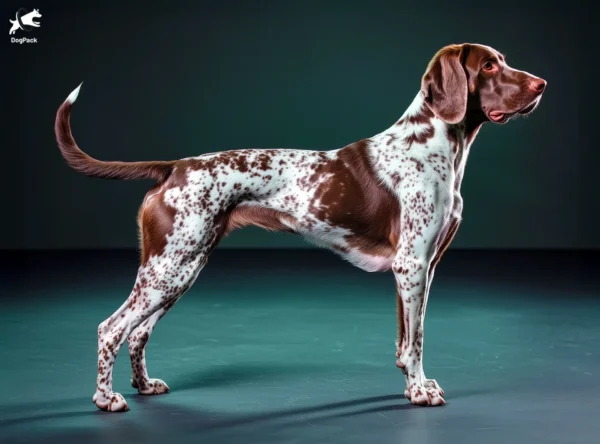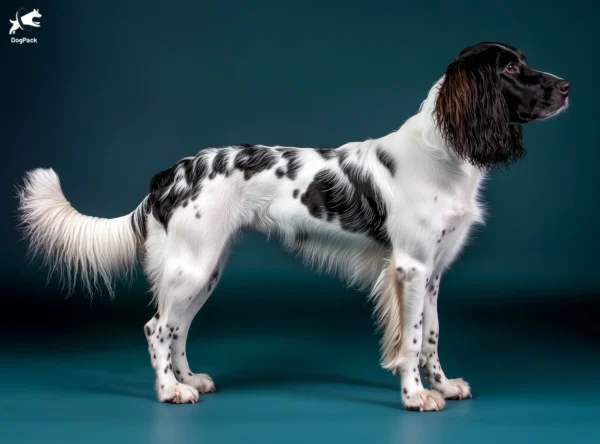German Longhaired Pointer Dog Breed Info & Overview
The German Longhaired Pointer, a stunning blend of elegance and versatility, is a breed that pairs beauty with exceptional functionality. Originally bred in Germany for hunting, this athletic and intelligent dog thrives in both fieldwork and family life. With its luxurious coat, sharp mind, and boundless energy, the German Longhaired Pointer is a devoted companion for active owners seeking loyalty and spirited adventure.
Characteristics
Pictures
Breed History
The German Longhaired Pointer traces its roots back to the 19th century in Germany, where it was developed as an all-purpose hunting dog. Breeders aimed to create a versatile canine capable of pointing, retrieving, and tracking game both on land and in water. The breed was refined by crossing local bird dogs with setters and spaniels.
By emphasizing both form and function, German breeders produced a dog with not only excellent hunting abilities but also an elegant appearance. The breed’s luxurious coat and noble stature were intentionally cultivated to make it stand out in the field. The German Longhaired Pointer became a symbol of skilled hunting and breed refinement.
Despite its popularity in Germany, the breed remains relatively rare outside its homeland. Enthusiasts have worked to promote the German Longhaired Pointer internationally, valuing its working capabilities and affectionate nature. Today, it continues to excel in hunting roles and is cherished by those who appreciate its unique combination of talents.
Temperament, Personality
Known for their intelligence and eagerness to please, the German Longhaired Pointer forms strong bonds with its family. These dogs thrive on companionship and can become quite attached to their human counterparts. Early socialization is important to ensure they interact well with strangers and other animals.
Their high energy levels and natural instincts make the German Longhaired Pointer an enthusiastic participant in outdoor activities. They are happiest when they have a job to do, whether it’s hunting, hiking, or engaging in canine sports. Mental stimulation is just as important as physical exercise to keep them content.
While affectionate and gentle with family members, they may be reserved around unfamiliar people. Their alertness and keen senses make them excellent watchdogs, although they are not typically aggressive. Proper training can help channel their instincts in positive ways.
Physical Characteristics
The German Longhaired Pointer is a large, athletic dog with a strong and well-balanced build. Males typically stand between 24 to 28 inches tall, while females range from 23 to 26 inches. They have a noble head, expressive eyes, and a proud carriage that reflects their confident nature.
One of the breed’s most distinctive features is its beautiful coat. The coat is medium to long, with a dense undercoat that provides protection against harsh weather conditions. It comes in various colors, including solid brown, brown roan, and sometimes with white markings.
Their ears are long and lie flat against the head, adding to their elegant appearance. The tail is usually carried horizontally and may be feathered with longer hair. Overall, their physical traits are a blend of strength and grace, suited for the demands of hunting and active lifestyles.
Health Issues
Generally, the German Longhaired Pointer is a healthy breed with a lifespan of 12 to 14 years. However, like all breeds, they can be prone to certain genetic health conditions. Hip dysplasia is one such concern, which can affect mobility and comfort.
Eye conditions such as progressive retinal atrophy (PRA) may also occur in the breed. Regular veterinary check-ups and screenings can help detect and manage these issues early on. Responsible breeders often test for these conditions to minimize their prevalence.
Bloat, or gastric torsion, is another potential health risk due to their deep chest. It’s important to monitor their feeding habits and avoid vigorous exercise immediately after meals. Maintaining a healthy weight through proper diet and exercise can contribute to their overall well-being.
Grooming Needs
The German Longhaired Pointer’s luxurious coat requires regular grooming to keep it in top condition. Brushing at least two to three times a week helps prevent matting and reduces shedding. During seasonal shedding periods, more frequent brushing may be necessary.
Their ears should be checked regularly for signs of infection or buildup, especially since their floppy ears can trap moisture and debris. Cleaning their ears gently with a veterinarian-recommended solution can help prevent issues.
Regular bathing is not typically necessary unless they get particularly dirty from outdoor activities. Nail trimming, dental care, and checking for parasites should be part of their routine grooming to ensure they stay healthy and comfortable.
Exercise Requirements
High energy and a strong work ethic mean that the German Longhaired Pointer needs ample daily exercise. At least one to two hours of vigorous activity is recommended to keep them physically and mentally satisfied. Activities can include long walks, jogging, hiking, or playing fetch.
Engaging them in tasks that stimulate their mind is equally important. Training sessions, puzzle toys, and participation in canine sports like agility or obedience can provide the mental challenges they crave.
Without sufficient exercise and stimulation, they may become bored and develop unwanted behaviors such as chewing or digging. Providing them with outlets for their energy is key to a happy and well-adjusted companion.
Training Tips
Intelligent and eager to please, the German Longhaired Pointer responds well to positive reinforcement training methods. Consistency and patience are essential to harness their natural abilities and willingness to learn.
Early obedience training and socialization help them develop good manners and confidence. Exposure to various environments, people, and other animals can reduce shyness or wariness around strangers.
Avoid harsh training techniques, as these can damage their trust and hinder progress. Engaging them in activities that utilize their hunting instincts, such as tracking games, can make training more enjoyable and effective.
Nutrition, Diet
Feeding the German Longhaired Pointer a high-quality diet appropriate for their age, size, and activity level is crucial. Active hunting dogs may require a diet rich in proteins and fats to support their energy needs.
Portion sizes should be carefully measured to prevent overfeeding, as obesity can lead to health issues like joint problems. Dividing their daily food intake into two meals can help reduce the risk of bloat.
Consulting with a veterinarian can provide guidance on specific dietary requirements, including any supplements that may benefit their coat and overall health. Fresh water should always be available, especially after exercise.
Adoption, Breeders
If you’re considering adding a German Longhaired Pointer to your family, it’s important to find a reputable breeder who prioritizes health and temperament. Visiting the breeder and meeting the puppy’s parents can provide insight into what to expect.
Alternatively, rescue organizations may have adult dogs in need of loving homes. Adopting can be a rewarding way to provide a second chance to a dog in need. Organizations like the German Longhaired Pointer Club of North America can offer resources and support.
Ensure that any breeder or rescue group you work with provides proper health certifications and is transparent about any potential health issues. This diligence helps ensure a healthy and happy addition to your family.
Family Pet?
The German Longhaired Pointer can make a wonderful family pet for active households. Their affectionate nature and loyalty make them loving companions who enjoy being part of family activities.
They tend to do well with children, especially when raised together, but supervision is recommended due to their size and exuberance. Teaching both the dog and children appropriate interactions ensures a harmonious relationship.
Early socialization with other pets is important. They may have a strong prey drive, so introductions to smaller animals should be managed carefully. With proper training, they can coexist peacefully with other dogs and pets.
Right For You?
If you’re an active individual or family who enjoys outdoor adventures and can provide plenty of exercise, the German Longhaired Pointer might be the perfect match. Their need for activity and mental stimulation means they thrive in homes that can meet these demands.
They are best suited for those with experience in handling energetic breeds or who are willing to invest time in training and socialization. Apartment living is not ideal due to their size and energy levels.
Before committing, consider whether you can meet their grooming needs and provide the companionship they require. If so, you’ll be rewarded with a loyal, intelligent, and loving companion.
Conclusion
The German Longhaired Pointer is a remarkable breed that offers a blend of elegance, intelligence, and versatility. For those who appreciate an active lifestyle and can dedicate time to training and companionship, this breed can be an exceptional addition to the family. They excel in hunting roles but also make affectionate and loyal companions at home.
However, they require significant exercise, mental stimulation, and grooming care. Potential owners should be prepared to meet these needs to ensure a happy and healthy relationship. If you’re seeking a devoted partner for outdoor adventures and have the resources to invest in their well-being, the German Longhaired Pointer might just be the perfect canine companion.
FAQs
-
How does the German Longhaired Pointer differ from other pointing breeds?
The German Longhaired Pointer is distinguished by its elegant, long coat and versatility in hunting. While other pointing breeds may specialize in certain tasks, this breed excels in both pointing and retrieving on land and in water, making it highly adaptable.
-
Can a German Longhaired Pointer live in an apartment?
Due to their high energy levels and size, they are better suited to homes with yards or rural settings. However, with committed daily exercise and mental stimulation, they can adapt to smaller living spaces.
-
What type of owner is best suited for a German Longhaired Pointer?
This breed thrives with experienced owners who lead active lifestyles. They need someone who can dedicate time to exercise, training, and engaging activities, as they are intelligent, energetic, and eager to work.
-
Are German Longhaired Pointers prone to separation anxiety?
Yes, they form strong bonds with their families and may develop separation anxiety if left alone for long periods. Providing companionship, interactive toys, and crate training can help ease their anxiety.
-
What are the key differences between male and female German Longhaired Pointers?
Males are typically larger and may have a slightly more independent temperament, while females tend to be smaller and more people-oriented. Personality traits can vary greatly by individual, so early socialization is crucial for both sexes.
Breed Ratings
The German Longhaired Pointer is highly intelligent and quick to learn new commands, excelling in training and problem-solving tasks.
They are playful and enjoy interactive games with their owners, making them fun companions for active families.
With a high energy level, they require ample daily exercise to stay happy and prevent boredom-related behaviors.
Moderate shedding occurs, especially during seasonal changes, so regular brushing helps manage loose hair.
Strong prey drive due to hunting background; caution is needed around small animals without proper training.
Their long coat requires frequent brushing and maintenance, making grooming more demanding than some breeds.
Eager to please and intelligent, they respond well to positive reinforcement but may require consistent training.
They prefer company and may become anxious or destructive if left alone for long periods.
Moderate barking; they may alert owners to strangers or express excitement during activities.
Generally minimal drooling, making them a relatively tidy breed in this regard.
Usually friendly with other dogs when properly socialized, enjoying canine companionship.
Generally healthy but can be prone to certain genetic conditions; regular vet care is important.














